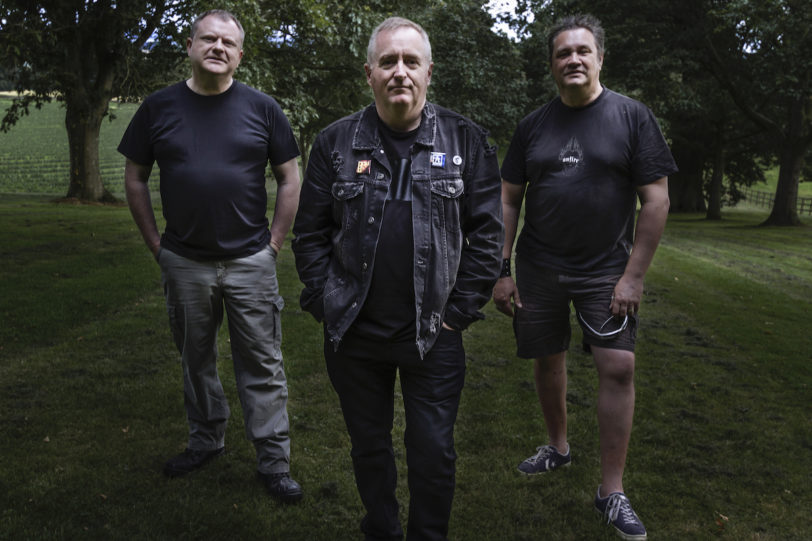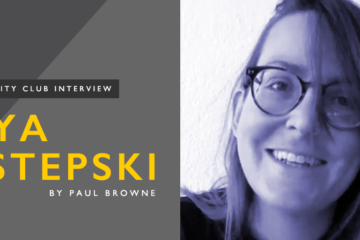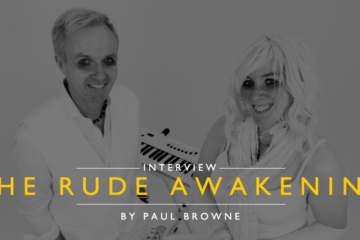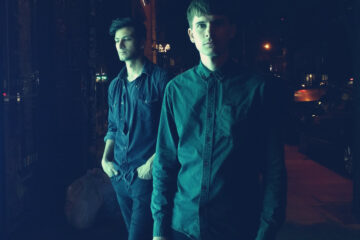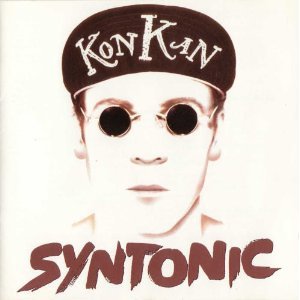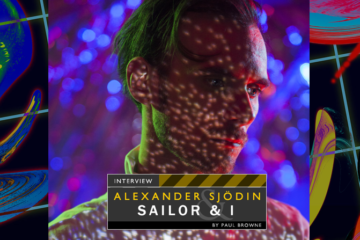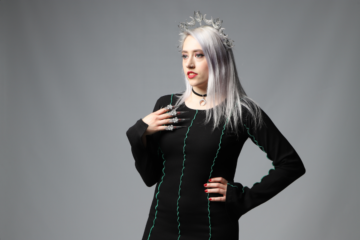Time is come…
One of the most familiar names on the grassroots electronic scene is Nature Of Wires, an outfit originally formed in 1986 by Gary Watts (synths & programming) and Andrew Stirling-Brown (vocals).
Although the group took an extended hiatus in 1993 (shortly after vocalist Sarah Bouchier – aka Lady B – joined), they bounced back in 2015 with Tim Powell-Tuck on drumming duties. This led to a collaboration with US-based singer CountessM (which resulted in 2016’s Cyber Rendezvous album).
Meanwhile in 2019, Lady B resumed vocal duties for a new EP titled Reborn and she also became part of Nature Of Wire’s live ensemble. Earlier this year, the outfit also released Modus, an album of songs originally penned between 1986 and 1993, but given a workover with some top producers to bring a fresh, dynamic sound to the album.
Outside of their own work, Nature Of Wires have also established themselves as the go-to outfit for remix duties. Some of their more notable remixes include work by Massive Ego, Leaether Strip, Sigue Sigue Sputnik Electronic, !distain, Precog, Advance, Freakangel, Machine Rox and Vogon Poetry.
Nature of Wires are also due to perform at all of the global-spanning Artefaktor AL4 concerts as part of their 2020 plans. We sat down with Gary Watts to discuss this ambitious venture as well as the production of Modus, remix work and what the future holds for the electronic outfit.
How did Nature of Wires originally get started and what were your impressions of the electronic music landscape in the mid 1980s?
It all started in 1986 when, at the age of 19, I bought a Casio CZ-101 synth from one of the bosses where I was working at the time. This led to me approaching my best mate Andrew, to ask if he fancied singing in a band. He said no, but after a bit of gentle persuasion we got together with a couple of lads from the village where I lived and we played our first gig on 18th October 1986, at a workmate’s engagement party (I’ve still got a recording of it somewhere). Over the next 12-18 months we went out under various names, before we became a 2 piece. The name which has stuck since came about after Andrew was bemoaning the fact that cables get badly wound round each other, even when they don’t appear to be moved. I said that it’s just the nature of wires. Cue light bulb moment!
The mid-80s was an exciting time for electronic music. It was considered cool and current and the charts seemed to be dominated with acts who had at least one synth. Having got into electronic music at the age of 13, after seeing Tubeway Army on ToTP in September 1979, I wanted to be part of it all.
What was the original inspiration behind crafting the new Modus album?
I got back into making music in 2014, but it soon became apparent that Andrew and I were unlikely to write any new songs, because life kept getting in the way, so we decided to try & make the most of what we already had. Between 1987 and 1993 we recorded (in Andrew’s garden shed) a 15 song album called Modus Operandi (which I may put on Bandcamp at some point) using a 4 track and loads of hardware synths and FX. Fast-forwarding to more recent times, we wanted to produce something which we could look back on in 20 years’ time and be proud of it, just for ourselves really, and so in 2014 I set about recreating the tunes from Modus Operandi using Logic Pro on a MacBook, in between remixes and an album with California’s CountessM. There was talk of doing a follow up to Modus called Maximus, which would include more songs which we wrote in the 80s & 90s, which never made it onto Modus Operandi, but to be honest I want to look forward rather than backwards, so this is unlikely to happen in the near future. I think we’ve put the seal on our youth.
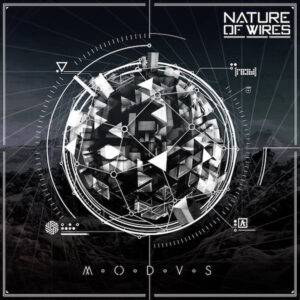
Although many of the tracks on the album were originally conceived between 1986 and 1993, they sound curiously fresh and modern. Was this a deliberate scheme in the production?
We’ve stayed true to the original recordings and so to that extent I think the songs probably still sound a bit retro to many. I think it’s because we’ve used up to date technology that they sound fresh – the depth and quality of production we can get now, even in a spare bedroom, simply wasn’t possible in the 80s & 90s. I wanted Modus to sound as good as it possibly could, which is why I employed the skills of some professional producers, namely Steve Whitfield, who has done a stunning job of Promenade Cinema’s Living Ghosts album [see TEC review here], and Mike Marsh, who is one of the foremost mastering guys on the planet, having mastered albums for, amongst literally hundreds of others, OMD, Human League, Prodigy, Depeche Mode and more recently Calvin Harris.
Between writing new material, doing remixes and taking NoW on the road, how do you find time to fit it all in?
I’m fortunate enough to be self-employed and so I can be flexible with my time. I’m probably spending 50-60% of my time between 9am & 5pm doing paid IT work, which covers the cost of my expensive hobby, which occupies the other 40% of my time during office hours. If you include evenings and weekends then the time spent on musical activities far outweighs time spent doing the “proper” job. I also occasionally spend time with my wife Guen and our four cats!
You have both Andrew Stirling-Brown and Sarah Bouchier alternating on vocal duties. How would you describe their working methods with NoW? Are they similar in their approach or poles apart?
Poles apart. I tried to incorporate Sarah (aka Lady B) on the Modus album, but it became apparent very quickly that it wasn’t going to work. Sarah has a completely different style to Andrew and her voice simply didn’t fit any of the songs. Sarah did however sing on ‘Serpents and Steel Ladders’ on the Modus Operandi album, when she was with us from 1992 to 1994, but this is the only joint effort between the two singers. Andrew is very easy going and quite laid back, as well as being a very busy armourer and writer. Sarah is more like me – very driven and focussed and just wants to get things done. Consequently the song writing process with Sarah is extremely quick; she can literally come up with a lyric within an hour of me sending an instrumental idea. Earlier this year I had them both alternating on vocals on stage, but it was just odd. Andrew has made a few appearances this year, but going forward and certainly for the next release and gigs outside the UK, Sarah is the vocal collaborator in the band.
Ironically, because Modus was over a year late coming to fruition, the old songs with Andrew were released after the new songs with Sarah. It’s been easy enough to explain when I’ve been asked about it, but to the uninitiated I can see how it can be confusing. It’s been like being in two bands with the same name, so to simplify things Nature of Wires is now classed as a solo project (me), remixing (which is most of what I do), producing and collaborating with the like of e.g. CountessM and Lady B (other collabs are in the pipeline). The plan for future releases with Sarah is that they will be promoted as “Nature of Wires ft Lady B”. Sarah already gets lots of offers of vocal work and so I think giving her autonomy makes her more accessible to others wanting to employ her amazing vocal skills.
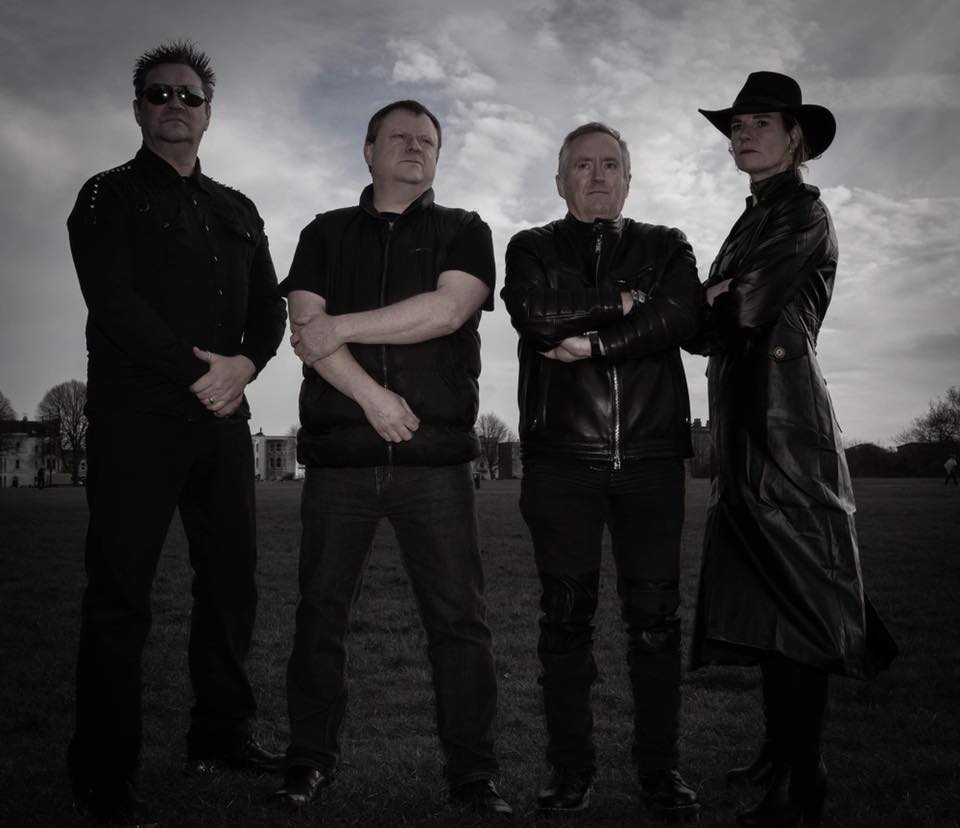
You have a brand new album in the pipeline in the shape of Out Of My System. What can you tell us about the album and when is it likely to be released?
It’s all a bit up in the air at the moment. We’ve had to revisit the whole idea of releasing an album as a single entity. Songs are all written – we just need to decide what to do with them. We’ve teamed up with a label/promoter in New York, which has opened some big doors and which is already giving Sarah and me plenty of interesting work, both individually and as NoW ft Lady B. 2020 is shaping up to be an exciting year – watch this space!
The way music is funded and distributed has changed drastically in the last 10 years. What are your thoughts, if any, on crowdfunding and the PledgeMusic collapse?
Crowdfunding isn’t something we’ve ever looked at and so I don’t have enough experience of it to be able to comment. One of the bands, with whom we’ve appeared a couple of times, fell victim to the PledgeMusic collapse, which was obviously a painful experience. From what I understand, PledgeMusic became less of a crowdfunding type business and more of a business offering exclusive things to fans. I think they took on too much too quickly, which often leads to cashflow issues and makes it unsustainable.
The musical landscape has changed significantly for grassroots electronic acts over the past 10/15 years. Do you think artists and bands are in a stronger position than they were back then?
I wasn’t part of the musical landscape 10/15 years ago (I had a break between 1994 & 2014), but I would guess, certainly at my level, no. The music industry has become like the football industry, where 99% of the wealth is held by the 1% at the top. The growth of social media has opened up opportunities for artists to be heard by a global audience, but of course everyone is doing it and so the grassroots arena has become saturated to the extent that there aren’t enough hours in the day to take everything in. It’s at least as hard now to be noticed than it was in the 90s, but for different reasons. Marketing is more important than music – if you’ve got millions to spend on getting your music heard then it will sell, even if it’s complete rubbish. People largely only like to hear what they already know, which is why covers and tribute bands do so well. If you can pump the same song into someone’s ears enough times then their brain will be persuaded into thinking that it’s good, but this costs serious money to achieve.
Opportunities to play original music are becoming more and more limited as venues continue to close down. In my experience it is extremely difficult to get venues to even respond to booking enquiries, but to be fair, if I was the owner of a venue, would I take a risk on a band which can only pull 5-10 people? Pulling crowds has never been more difficult, unless you’ve got huge amounts of money to be able to get your band well-known enough to encourage people to get out of their armchairs and go and see live music. Luck can play a big part too – right place, right time and all that.
Nature of Wires have a reputation as the go-to outfit for remixes. How does this process work in terms of how people present their tunes to you? Are you given ideas by the artists or do they trust you to work your magic alone?
I’m left pretty much to my own devices. I’ve produced 70+ remixes now so I guess I must be doing something right. Artists will send me a DropBox or WeTransfer link to the stems of their song; sometimes I’ll get every single component part and sometimes just vocals and a bassline. I often come close to overcommitting myself, because I can’t say no. It has been suggested by those close to me that I should start charging for remixes, but I want to keep it as a hobby. I’ve seen far too many people fall out once money becomes an issue.
Are there any notable remix projects coming up?
I’ve been working on remixes for Fuzzbox and Kirsty Hawkshaw (of Opus III fame), who are quite high profile. Most of the time I’m remixing for artists at my level (I hesitate to say “scene” artists). I am starting to work more in the professional marketplace now though, so hopefully I’ll get the opportunity to do remixes for more big name artists.
You’re down for every city for the ambitious Artefaktor AL4 concerts in 2020, which includes London, Berlin and Copenhagen. How challenging is this going to be for Nature of Wires?
The biggest challenge will be getting my live drummer Tim’s drums to Copenhagen, but we’re working on that one. Other than that I don’t think it will present too much of a challenge. Tim, Sarah and I have experience of playing on the continent and travelling light. I drove to Berlin & Leipzig so that we could take the drums, but Sarah and I flew to Cologne (which Tim couldn’t make) with everything I needed in a cabin bag and then I borrowed a keyboard from the other band with whom we were appearing.
What’s the technical side of Nature of Wires like in the studio? What equipment do you favour?
I’ve got an iMac for composition (the MacBook I started out with in 2014 is purely used for live work nowadays), Logic Pro X, loads of software synths, Arturia MatrixBrute, Korg Prologue, couple of controller keyboards and some modest Rokit studio monitors. Most of what I produce is with software synths, most notably Omnisphere 2, Sylenth 1 and Nexus 2, but if I want some deep or dirty analogue sounds then I bring out the ‘Brute or the Prologue.
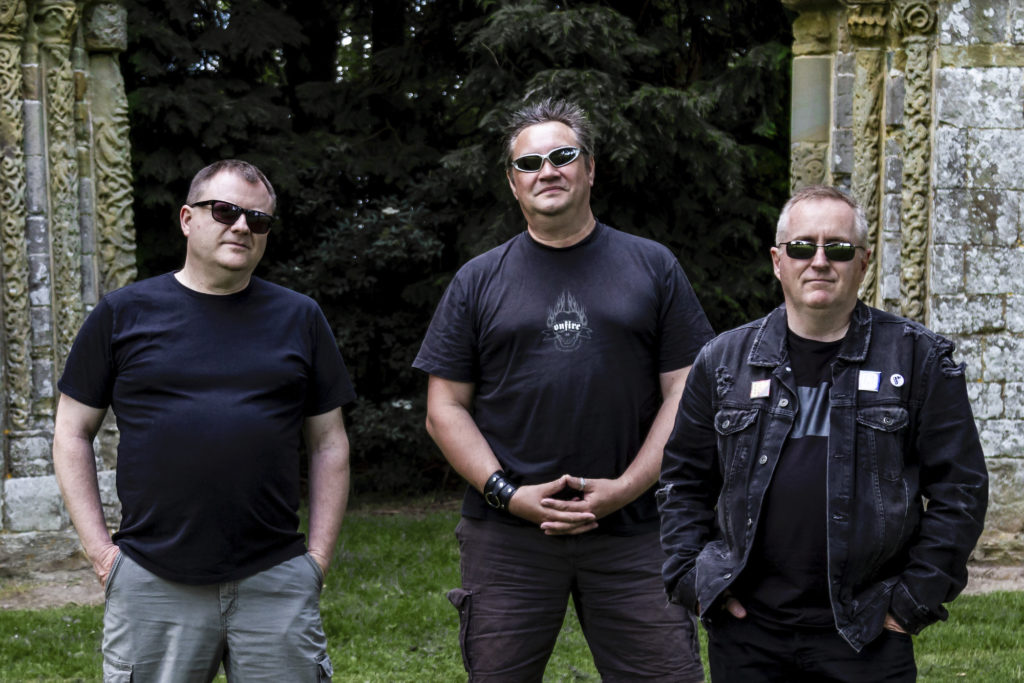
How would you sum up Nature of Wires’ sound?
That’s a tricky one. I think the Numan influence is quite prominent. It’s generally quite thumpy and because pretty much everything is in a minor key it has that dark edge to it, but then a lot of other bands could say the same. Sarah’s voice is what currently makes NoW distinctive among the “scene” (there, I said it) – I don’t think there’s anyone else who sounds like Sarah.
Are there any particular current acts that have caught your attention?
Empathy Test immediately springs to mind, because of the success they’ve had without any obvious outside help. Their songs are easy to identify with and frontman Isaac is brilliant at striking the balance between being accessible, yet still a bit untouchable. Very clever guy.
What’s on the rest of the schedule for Nature of Wires for next year?
Sarah, Tim & I have got a gig with Toyah in Wolverhampton on January 18th and then nothing in the diary until the Artefaktor Live 4 events in April & May. Developing the relationship with the New York label is high on the agenda. I want to play more in mainland Europe, Brexit permitting, and at festivals and I’ll be more selective with the gigs I agree to in the UK – I’ve played to too many empty rooms! I am looking to appeal to a wider audience and so you can expect a few changes to the way NoW sounds and looks. It’s as if I’ve thrown everything up in the air, but it hasn’t come back down to earth yet.
Modus is out now on the Analogue Trash label.
The Electricity Club extends its grateful thanks to Gary Watts.
Nature of Wires photos by Russ Dallen.
Nature of Wires have several live dates scheduled:
16th Nov with Empathy Test at o2 Islington (details here)
18th Jan The Slade Rooms – Wolverhampton (with Among the Echoes & Toyah)
25th April Artefaktor Live 4 – Electrowerkz, London
2nd May Artefaktor Live 4 – Berlin
9th May Artefaktor Live 4 – Copenhagen
http://www.natureofwires.com/
https://www.facebook.com/natureofwires/
https://natureofwires.bandcamp.com/
https://twitter.com/natureofwires
https://artefaktorradio.com/artefaktor-live-4-london-berlin-copenhagen/


